- English (United States)
- 日本語
| Main Hall | |
| 9:30▼9:35 |
Opening Remark◆ Koichiro Sakai Opening Remark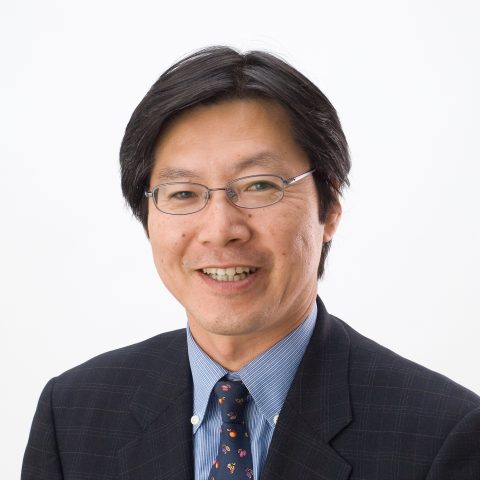 Vice President, Nikkei Business Publications, Inc.
|
| 9:35▼9:50 |
Keynote Speech 1: Sustainable Seafood in the 21st Century◆ Kyle Peterson Keynote Speech 1: Sustainable Seafood in the 21st CenturyDownload here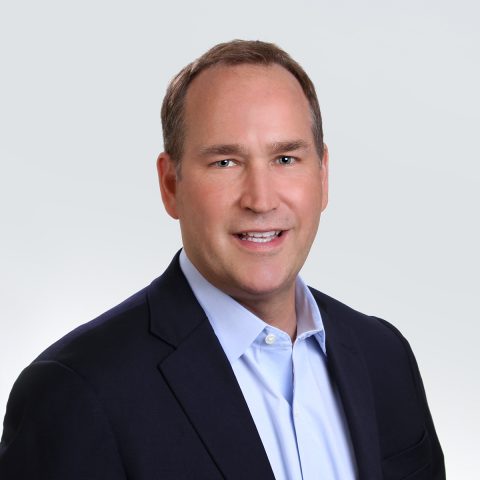 Walton Family Foundation Executive Director Kyle Peterson is the executive director of the Walton Family Foundation, where he leads all foundation operations and, with the board of directors, guides program strategy and grant-making of more than $300 million annually. Before the foundation, Kyle led global engagements for FSG as managing director and board member and managed more than 100 consulting projects in the areas of strategy, program design, operations and evaluation. Kyle has more than 25 years of social sector experience leading initiatives related to education, workforce development, domestic and global health, economic development and the environment. A former Peace Corps Volunteer in Sierra Leone, Kyle holds an MBA and MPA from the University of Texas, McCombs School of Business and Lyndon B. Johnson School of Public Affairs, and a B.A. in international studies from American University. |
| 9:50▼10:05 |
Keynote Speech 2: Ocean Plastics and Sustainable Ocean◆ Hideo Suzuki Keynote Speech 2: Ocean Plastics and Sustainable Ocean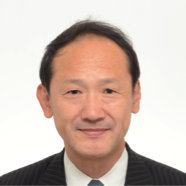 Ambassador, Director General and Assistant Minister for Global Issues, Ministry of Foreign Affairs of Japan
April 1985 - Joined Ministry of Foreign Affairs of Japan |
| 10:05▼10:20 |
Keynote Speech 3: Shanghai Disney Resort Sustainable Future◆ Alan Orreal Keynote Speech 3: Shanghai Disney Resort Sustainable FutureShanghai Disney Resort, ranked as 21st in the world's 25 most popular amusement parks 2017 is promoting sustainable seafood. Attendees can know why and how they do, and have chance to think about sustainable seafood from a new viewpoint, amusement parks. 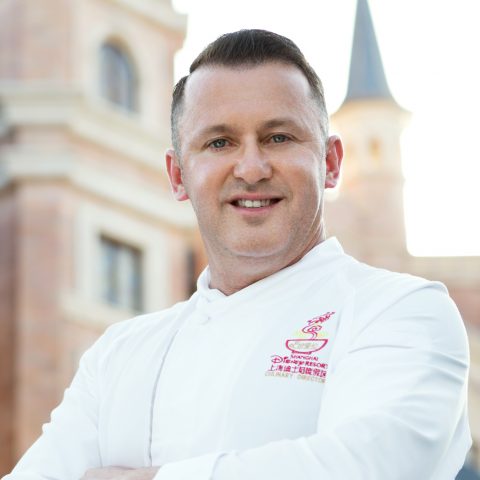 Culinary Director, Shanghai Disney Resort At Shanghai Disney Resort where he is spearheading the operation across the mega resort, Alan Orreal is the epitome of borderless and dynamic modern-day chef. He is the Vice-Chairman of the World Association of Chefs Societies for the Global Development of Young Chefs and a WACS-approved judge; in addition to being an Honorary Professor at SIT and guest lecturer at colleges across Asia as well as a TV host and judge of a television reality show. Chef Alan’s influences are driven very much from the great chefs that he has trained under, including Cheong Liew, Tony Bilson, Otto Weibel and Peter Knipp. Alan has garnered numerous coveted trophies and medals from culinary events including coaching responsibilities for the National Culinary Teams for both China and Japan to compete in the Culinary Olympic, without a doubt one of the most celebrated culinary professionals in the world today. |
| 10:20▼10:35 |
Keynote Speech 4: Sustainable Ocean - From Aichi-Targets to Achieving SDGs◆ Hideka Morimoto Keynote Speech 4: Sustainable Ocean - From Aichi-Targets to Achieving SDGsPermanent Secretary, Ministry of the Environment Born in January, 1957 in Osaka, Japan. Entered the Environment Agency in 1981. Mr. Hideka Morimoto has been appointed to current position in the Ministry of the Environment (MOEJ) after he held positions such as Deputy Vice Minister of the MOEJ, Deputy Secretary General of the Nuclear Regulation Authority, Director of Preparation Office of Reform of Nuclear Safety Regulatory Organizations, etc. (Councillor, Cabinet Secretariat), Councillor (in charge of nature conservation), Director of Management and Coordination Division, Director of Personnel Division of the MOEJ, Senior research fellow of the United Nations University (UNU), Researcher of the East-West Center in USA, Director of the Global Environmental Outreach Centre (GEOC), and Secretary to the Chair of the 3rd Session of the Conference of the Parties to the United Nations Framework Convention on Climate Change. During his duties above, Mr. Morimoto made contributions to enacting the Basic Environment Act and Satochi-satoyama Law, establishing the MOEJ and the Nuclear Regulation Authority. He was also engaged in reconstruction in Fukushima, countermeasures against asbestos and Minamata Disease, circular resource measures, etc. Mr. Morimoto graduated from Faculty of Law, the University of Tokyo. He is a part-time instructor at the Waseda University. |
| 10:35▼11:10 |
Talk Session 1: Social Responsibility in the Global Seafood Supply ChainFacilitator◇ Wakao Hanaoka Speaker◆ Patima Tungpuchayakul ◆ Tobias Aguirre Talk Session 1: Social Responsibility in the Global Seafood Supply ChainIn 2015, the issue of slavery in the seafood supply chain exploded into global newspapers. A web of international seafood businesses based in Southeast Asia feed slavery-produced seafood into the world markets. Men and women are kidnapped, tricked, trafficked, and used on boats as well as in processing plants. In the US and Europe where these news reports have been released, consumers have started holding retailers and seafood companies accountable, demanding that they do more to take care that their supply chain is clean. In this session, we are inviting Patima Tungpuchatakul, who has saved over 3000 migrant workers from the Thai seafood industry, and Tobias Aguirre, an expert of seafood traceability and issues around the global seafood supply chain. Download hereFacilitator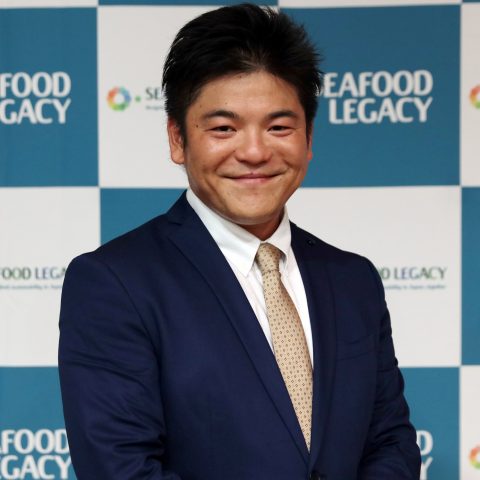 CEO, Seafood Legacy After working in marine conservation in the Maldives and Malaysia, Wakao joined Greenpeace Japan as a Senior Ocean Campaigner, where he started the Sustainable Seafood Market Project. Later, Wakao founded Seafood Legacy in Tokyo in 2015, to build Japan-centric solutions for seafood sustainability by addressing the importance of domestic business-led initiatives to create a driving force for regulatory reforms. Wakao is also an Expert Advisor of the Cabinet Office Council for Promotion of Regulatory Reform Fishery Working Group, a Committee Member of the Fishery Agency Wide Sea-area Fisheries Adjustment Commission, and a Collaborator member of the Conservation Alliance for Seafood Solutions (CASS). He is also a steering board member of Global Sustainable Seafood Initiatives (GSSI) and a member of Global Seafood Rating Alliance (GSRA). Speaker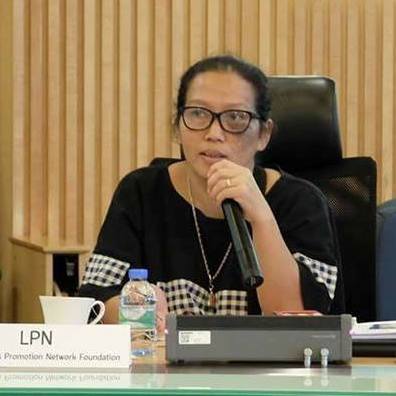 Director, Labour Rights Promotion Network Foundation Patima Tungpuchayakul has emerged as the key person behind attempts to end slavery at sea in South-East Asia. Patima founded the Labour Rights Promotion Network Foundation (LPN) in Thailand in 2004 with Sompong Srakaew. Her interest in human rights began in 1996 after graduation from Mahasarakham University, when she realized that the owners of factories near her home north of Bangkok were abusing migrant workers, especially women and children. LPN rescued about 3000 captive and stranded fishermen from isolated Indonesian islands in 2014. In more than two decades as an activist, Patima has deeply involved to support and protect Thais and migrants, created awareness of chronic rights breaches and worked with reformers to build understanding and improve the lives of workers and the laws governing their employment. She remains a dedicated innovator and recognizes that much more reform work still needs to be done in the region, on land and sea. 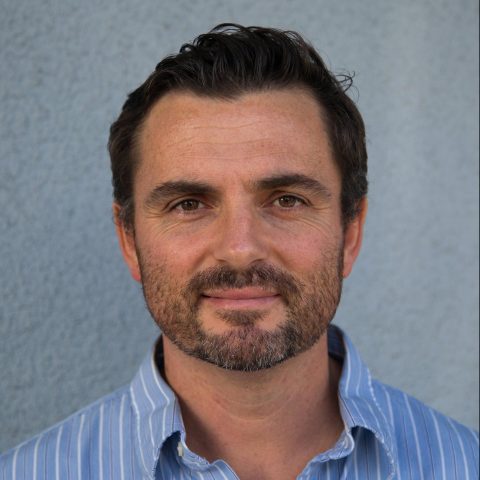 Chief Executive Officer, FishWise Through his work with seafood industry executives, foundations, government, and NGO leaders, Tobias Aguirre builds a collaborative approach to conservation, propelling the sustainable seafood movement forward. Serving on many advisory bodies and multi-stakeholder efforts, Tobias charts new national and global strategies, develops innovative solutions for FishWise business partners, and forges new ground in a complex field. He works towards an industry that makes a significant contribution to the food needs of a growing population, while supporting biodiverse, resilient, and productive oceans. As CEO, Tobias designed FishWise to be a trusted guide that businesses seek out for expertise and a proven track record of success. It is partnered with Albertsons Companies (2300+ stores), Target (1900+ stores), Hy-Vee (240+ stores), and many other companies throughout the United States. Ultimately, Tobias empowers the seafood industry to become champions for the oceans and the people that depend upon them. Tobias holds degrees from Stanford University and UCSD’s School of Global Policy and Strategy, where he was named Outstanding Alumnus of the Year for 2018. |
| 11:10▼11:25 |
Keynote Speech 5: Strengthen Management and Assessment of Stock for IUU Fishing Control◆ Shigeto Hase Keynote Speech 5: Strengthen Management and Assessment of Stock for IUU Fishing ControlDownload here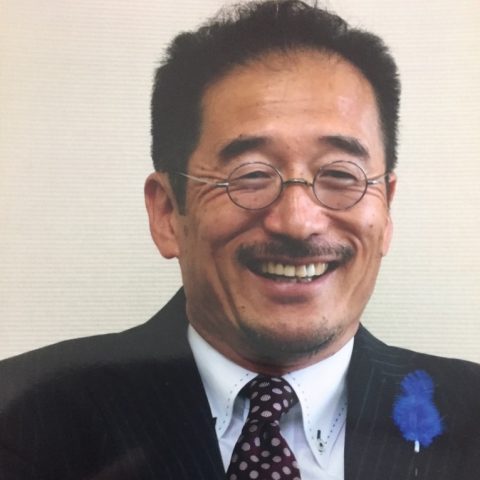 Director General, Fisheries Agency
April 1981 Joined Ministry of Agriculture, Forestry and Fisheries |
| 11:25▼12:05 |
Talk Session 2: Towards 2020 - Japanese FisheriesFacilitator◇ Kaori Fujita Speaker◆ Katsuyoshi Ikuta ◆ Shintaro Ikeda ◆ Kenichiro Mogi Talk Session 2: Towards 2020 - Japanese FisheriesFacilitator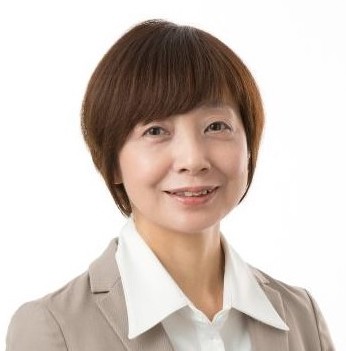 Senior Editor, Nikkei ESG / Producer, Nikkei ESG Management Forum Kaori was born in Uozu-city, Toyama prefecture. After graduating from the department of physics, faculty of science, the University of Tokyo, she started her career at Nikkei Business Publications. Prior to the current position, Kaori was an editor of Nikkei Electronics, vice editorial chief of National Geographic Japan, and editorial committee of Nikkei Ecology, a magazine for corporates’ environmental management. She is specialized in biodiversity, natural capital, ESG investment and information disclosure, SDGs, and regional revitalization. Kaori is also a visiting professor at Toyama University and serves as a member of the committee of SDGs Stakeholders’ Meeting, and the committee of Research Group of environment growth engine of Ministry of the Environment. She published “Biodiversity and Natural Capital Management in SDGs and ESG age” in October 2017. Speaker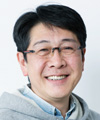 3rd Generation President, Suzuyo (Toyosu Tuna Intermediate wholesaler) / Representative Director, Seafood Smart Yoshikatsu is the 3rd generation president of Suzuyo, an intermediate tuna wholesaler in Tsukiji fish market. He also serves as a representative director of Seafood Smart, an organization which aims to increase the awareness about sustainable fisheries. Yoshikatsu lectures at a variety of seminars and acts as spokesperson and influencer on social media, radio, and television shows. He has also published several books about seafood sustainability and Japan’s fish eating culture. His motto is “there will be more fish if we eat smarter.” 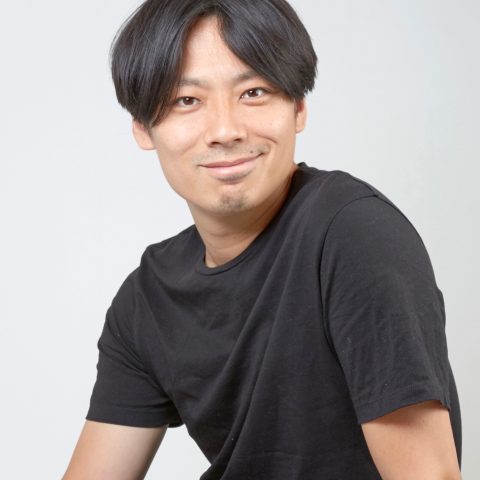 Beijing and London Olympic Badminton Player for Japan / Senior Consultant, FH Sports & Entertainment sector, FleishmanHillard Japan K.K. Former badminton player, Japan's first men's World Championship medalist. Beijing and London Olympic Games Athlete. Having retired from professional badminton in 2015, he is now a senior consultant at FleishmanHillard, one of the world's leading strategic communication and consulting firms headquartered in the United States. He is also devoting himself to the success of the 2020 Tokyo Olympics as Athlete Infrastructure Leader and Food Strategy Committee member on the Organizing Committee of the Olympic and Paralympic Games. 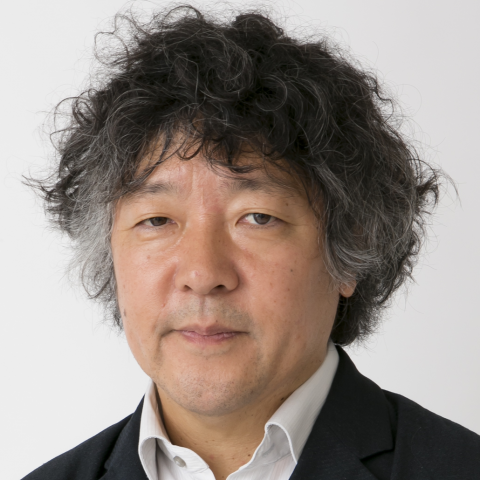 Neuroscientist, Writer, and Broadcaster Ken Mogi, Ph.D., is a neuroscientist, writer, and broadcaster based in Tokyo. His mission is to solve the so-called mind-brain problem, specifically, to understand how consciousness full of qualia arises from the billions of firing neurons in the brain. Ken is a senior researcher at Sony Computer Science Laboratories, and teaches at Tokyo, Osaka, and Japan Woman’s Universities. |
| Main Hall | Room A | Room B | Room C | |
| 12:10▼12:50 |
Luncheon A: Launching Sustainable Seafood Platform◆ Daisuke Matsui Luncheon A: Launching Sustainable Seafood PlatformDownload here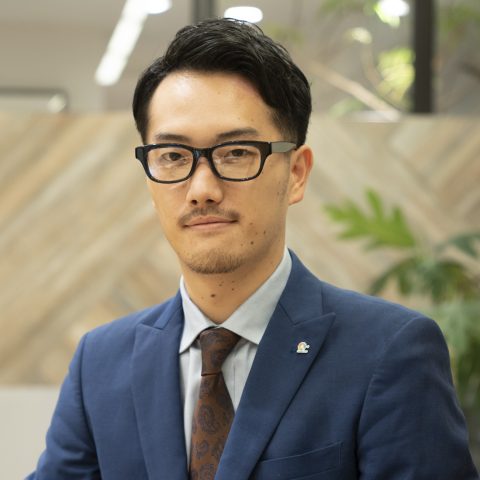 Business Engagement Manager, Seafood Legacy Born in Tsuruga city, Fukui prefecture. Growing up in a coastal city, his childhood experience made him realize that seafood resource around Japan is depleting. In 2015, he opened his first restaurant in his hometown Fukui, which only served MSC/ASC certified seafood. This initiative was first in Asia. In 2017, he opened “Sustainable seafood restaurant BLUE” in Tokyo, with a rigorous procurement policy set with NGO and experts. As a business engagement manager at Seafood Legacy, Daisuke is working with domestic business players to support their sustainable seafood agenda as well as designing a sustainable solution for both producers and buyers. Learning from success stories from overseas, he hopes to provide innovative and forward-looking consulting service. |
Luncheon B: Tuna Sustainability Overview for the Japanese Market◆ Tom Pickerell Luncheon B: Tuna Sustainability Overview for the Japanese MarketDownload here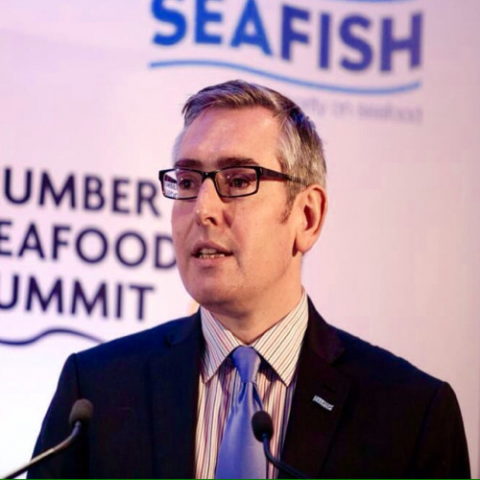 Global Tuna Director, Sustainable Fisheries Partnership (SFP) Dr. Tom Pickerell is Sustainable Fisheries Partnership’s (SFP) Global Tuna Director. Tom leads SFP’s tuna work programs including the fresh & frozen tuna supply chain roundtable. Before joining SFP, he was the Technical Director at Seafish, the UK Seafood Industry Authority. Previous to that role, Tom was the Senior Science Manager for the Seafood Watch program at Monterey Bay Aquarium in California. Earlier, Tom worked at the Shellfish Association of Great Britain (SAGB), where he managed the UK Shellfish Industry Development Strategy (SIDS) and later became the Director; WWF UK, where he was the Fisheries Policy Officer; and Defra, where he held a variety of policy and strategy roles in fisheries and aquaculture. He has a degree in Marine Biology, a master's degree in Analytical Biology, and a PhD in shellfish aquaculture. |
||
| 13:00▼14:10 |
M-1: A Vision and Commitment for the Future of Global Seafood BusinessesFacilitator◇ Henrik Österblom Speaker◆ Toshiya Yabuki ◆ Hiroyuki Sato ◆ Teresa Ish M-1: A Vision and Commitment for the Future of Global Seafood BusinessesThe aim of the session of to provide an update on the SeaBOS initiative to the Japanese audience and to illustrate that the Japanese companies are making substantial progress in becoming leaders in sustainability. Download hereFacilitator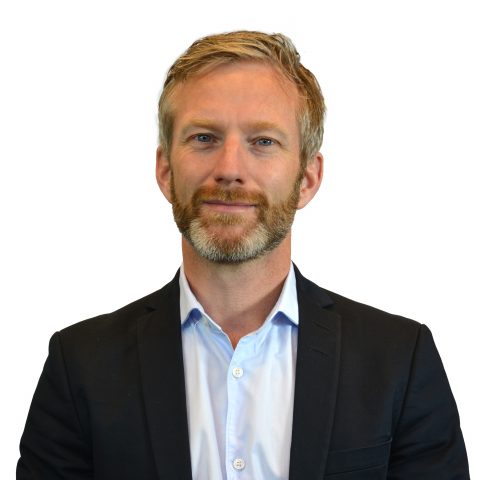 Deputy science director, The Stockholm Resilience Centre Henrik Österblom's research focuses on ocean stewardship, global cooperation and marine ecosystems. He is also deputy science director at the Stockholm Resilience Centre. Henrik is leading the Keystone Dialogues, a global co-production project including major private actors in global seafood, which has resulted in the establishment of the Seafood Business for Ocean Stewardship (SeaBOS) initiative, aimed to transform global seafood towards more sustainable practices. He is principal investigator in Nereus – Predicting the Future Oceans Program, member of the IMBeR Human Dimension Working Group and the Seas of Norden Network. Österblom serves on the international advisory board of the South American Institute for Resilience and Sustainability Studies (SARAS), as board member of Race for the Baltic, and represents Stockholm University in the United Nations Global Compact Action Platform for Sustainable Ocean Business. He represents the Stockholm Resilience Centre in the Section for Earth and Environmental Sciences at Stockholm University and is subject editor for Ecology and Society, Marine Policy, and PLOS One. Speaker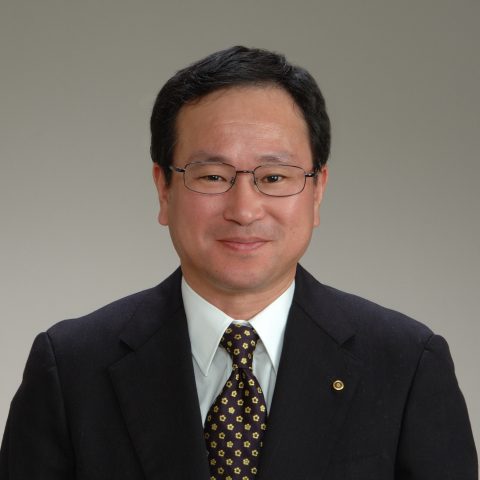 General Manager, Aquaculture Business Promotion Department, Nippon Suisan Kaisha, Ltd. Graduated from the Tokyo University (Dept. of Fisheries Science) in 1984 and joined Nippon Suisan. Since then most of the time in charge of aquaculture businesses related jobs including overseas missions (Chile, Indonesia, USA). Worked at Chilean subsidiary company (Salmones Antartica S.A.) for total 13years and served as CEO in 2014~2016. Since came back to Japan serving as present position and trying to make aquaculture businesses of Nippon Suisan bigger and more advanced. .jpg) Deputy Manager, Corporate Strategy Group, Corporate Planning Department, Maruha Nichiro Corporation Graduated from the Department of Business Administration, Faculty of Business Administration in Nanzan University and joined Nichiro Corporation (currently Maruha Nichiro Corporation) in 1997. Since then, Hiroyuki has been involved in fishery business operations. Through his experience in the UK and the Netherlands from 2006 to 2011, he continued his career in fishery business operations. He has started working on his current operations since 2015. 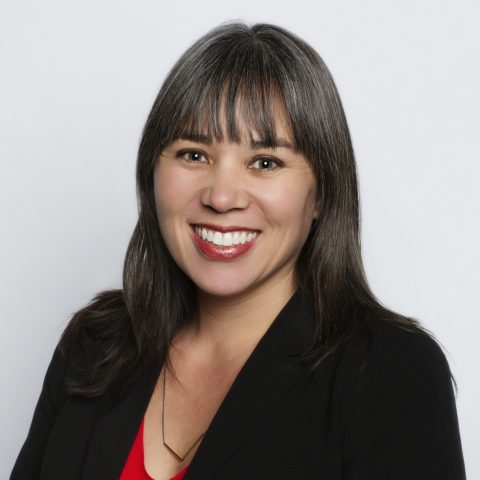 Program Officer, Environment Program, Walton Family Foundation
|
A-1: Designing the Future of Eel IndustryFacilitator◇ Aiko Yamauchi Speaker◆ Yasuyuki Yamamoto ◆ John Soetanto ◆ Kenzo Kaifu ◆ Faridz Rizal Fachri ◆ Lili Widodo A-1: Designing the Future of Eel IndustryThe global eel population is in danger of extinction. Given that 75% of the global eel catch ends up in Japan, we are the one who holds the future of eel and our food culture. In this session, we are inviting the stakeholders of the Indonesia shortfin eel FIP to discuss how we can better manage this valuable resource. Download hereFacilitator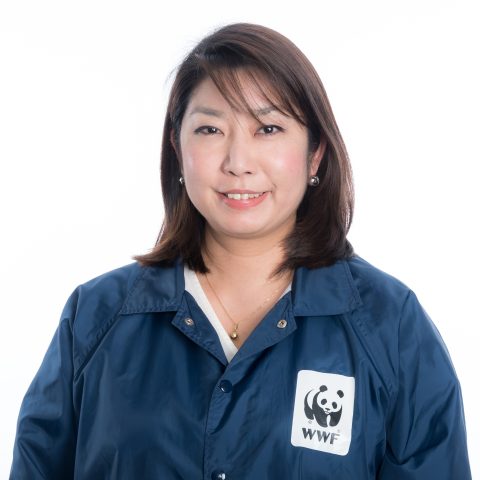 Oceans and Seafood Group Leader, WWF Japan Born in Tokyo. After studying coastal fisheries resource management and operation, Aiko joined WWF Japan Conservation team as a fisheries officer. At WWF Japan, Aiko focused on engaging domestic and international stakeholders to collaborate and promote sustainable fisheries and smart management of ocean resources. She is also leading a joint marine conservation project of WWF Japan, Chile, Indonesia, and China. She had been managing the marine conservation team since 2016. Aiko holds a doctorate degree from Graduate School of Tokyo University of Marine Science and Technology. Member of the special committee of stock management of Fisheries Policy Council. External reviewer of SH”U”N project by The National Research and Development Agency, Japan Fisheries Research and Education Agency. Speaker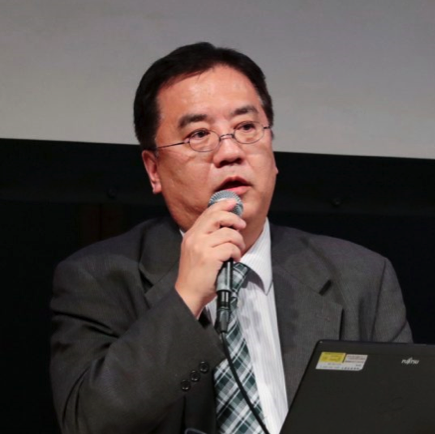 Manager, Group Merchandising Strategy Department, Aeon Retail Co., Ltd. Yasuyuki joined in JUSCO (currently AEON) in 1984. Yasuyuki has extensive experience in importing high-quality products which meets the various food safety standards. He had been in charge of developing eel, shrimp, crab, and organic agricultural products in the past. In 2001, he developed AEON’s eco-friendly seafood private brand “Greeneye” which incorporates EU organic standard. He also launched chemical-free eel and shrimp aquaculture products in the past. After a year of preparation, Yasuyuki successfully introduced MSC certification to AEON in 2006. Most recently, he developed AEON’s seafood sustainable seafood procurement policy and 2020 goal. His motto is to provide sustainable lifestyle to the society. 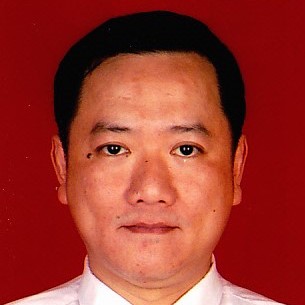 Vice President of Eel Operation, PT. Iroha Sidat Indonesia John Soetanto is currently working at PT. Suri Tani Pemuka member of JAPFA Group in Indonesia, a leading, pan-Asian, industrial agri-food company dedicated to feeding emerging Asia with essential proteins. He has worked in the field of aquaculture since 1996, in 2009 he began pioneering eel cultivation in the company, and in 2012 began the establishment of PT. Iroha Sidat Indonesia as an integrated company engaged in eel cultivation and eel processing. His concern for the sustainability of eels in nature has encouraged PT. Iroha Sidat Indonesia for restocking eels to nature since 2013 until now. Since 2017, he collaborated with WWF Indonesia and WWF Japan to develop BMP (Better Management Practices) of eel cultivation. You can reach John Soetanto at +62-811147448 or john.soetanto@japfa.com. 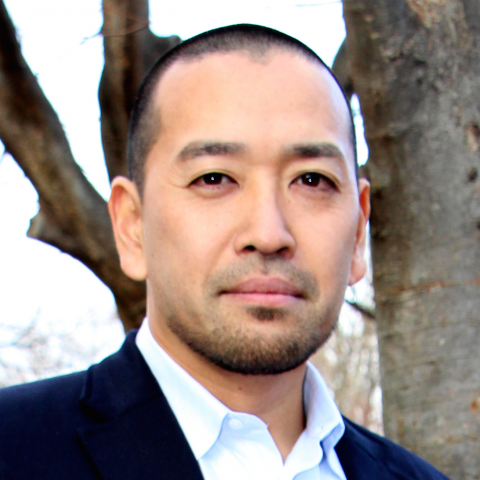 Associate Professor, Faculty of Law, Chuo University Prior to his current position, Kenzo Kaifu worked as an assistant professor at the University of Tokyo and Chuo University. In 2013, he joined IUCN’s Anguillid eels subgroup and conducted an assessment of eel species including Japanese eel. Later, he became a member of SSC AESG in 2015. He also led a Japanese eel conservation research project by Ministry of the Environment. With his extensive knowledge in conservation ecology, he is dedicated to protecting eel species through studying the life history of Anguillid eels and understanding the effectiveness of releasing. Kenzo has been engaged in information sharing and building consensus among a wide range of eel stakeholders, and held “Japan Eel Forum.” He published “Eel Conservation Ecology (Kyoritsu Shuppan, 2016) “and “My Research into Eels (Saela Shobo, 2013) “. Kenzo graduated from the Department of Sociology in Hitotsubashi University and received a doctoral degree in agriculture at the Graduate School of Agricultural and Life Sciences, University of Tokyo. Director, Eel Conservation Research Unit, Chuo University Research Development Initiative International Union for Conservation of Nature (IUCN) SSC Anguillid Eel Specialist Group (AESG) 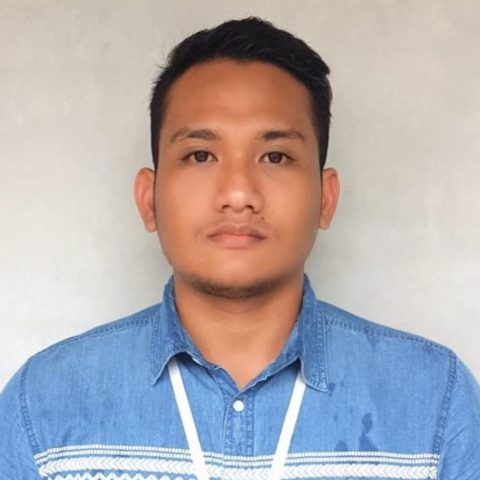 Capture Fisheries Officer, WWF Indonesia Faridz Rizal Fachri join with WWF Indonesia since 2015-present as Fisheries Business Officer for Inner Banda Arc Sub-seascape (IBAS) program, Moluccas Province, Indonesia, and have responsibilities to make sure WWF Indonesia’s contribution for seafood traceability by conducting technical support for partner: i.e. local government, customary institution, private sector, and universities to deal with the role of sustainable fisheries business within the conservation agenda in IBAS by conducting Fisheries Improvement Program (FIP) for mud crabs; reef fishes; and seaweed commodities for Aquaculture Improvement Program (AIP) in Southeast Moluccas. And started in the middle of 2016, joined national team for Capture Fisheries Issues under Directorate of Marine and Fisheries Program, and based in Bali to support some specific FIPs agenda to meet the MSC (Marine Stewardship Council) standards with partners and stakeholders in Indonesia. The Ministry of Maritime Affairs and Fisheries Indonesia
|
B-1: Sustainable Corporate Branding - How to Market Sustainable SeafoodFacilitator◇ Takeaki Udo Speaker◆ Josh Onishi ◆ Satoshi Matsumoto ◆ Takayuki Mamabe B-1: Sustainable Corporate Branding - How to Market Sustainable SeafoodMany business players struggling marketing sustainability. It is invisible, difficult to communicate, and in many cases, it comes with a premium price. Inviting the expert of corporate branding and sustainable marketing, to discuss how businesses can sell sustainability. Download hereFacilitator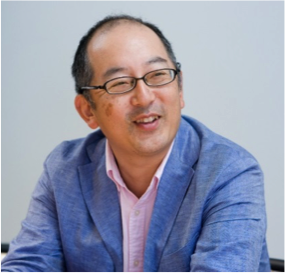 Senior Consultant and Organizational Development Facilitator, Hakuhodo Inc. Takeaki is specialized in consultation on corporate vision sharing and organizational culture improvement in the social innovation field. His previous projects are Food Loss Challenge Project, Mirai kyoiku kaigi (Future Education Summit), Kaisha hoikuen (Corporate Preschool), and SDGs EARTHMALL. Graduated from Department of Sociology at Tsukuba University 1992: Joined Hakuhodo’s marketing team 2002: Led corporate branding projects at Hakuhodo Brand Design 2010: Expanded his expertise to solving social issues through a multi-stakeholder collaboration Speaker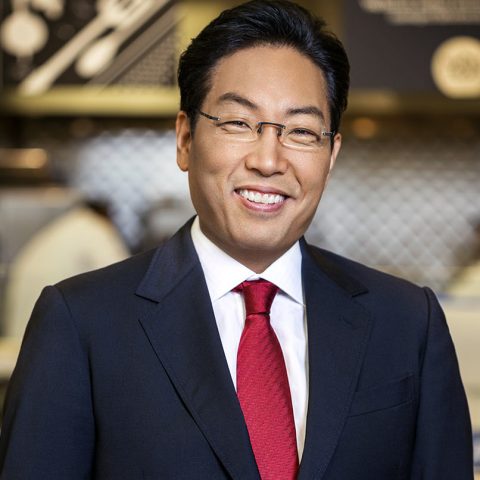 CEO, Peace Dining Corporation and Hana Group North America Josh Onishi is head of Hana Group North America and Peace Dining Corporation, the largest sustainable sushi retail organization in North America. Onishi’s commitment to global sustainability and responsible fishing practices are core principles of the company and in practice at every level, from vendor selection to distribution, packaging, energy consumption and more. Peace Dining was the first sushi company to achieve ISO 14001:2015 certification, and Onishi was named a “Sustainability Hero” by the Business Intelligence Group, the organization’s highest honor. The company is also a pioneer and leader in the growing “grocerant” trend in food retailing, cultivating a restaurant experience within a grocery store environment. With more than 1400 employees, Peace Dining operates nearly 300 sushi boutiques in upscale supermarkets such as Whole Foods, grocery stores, as well as a central production kitchen, serving wholesale corporate dining clients. Onishi received his MBA at Columbia University and undergraduate degree from Osaka University. 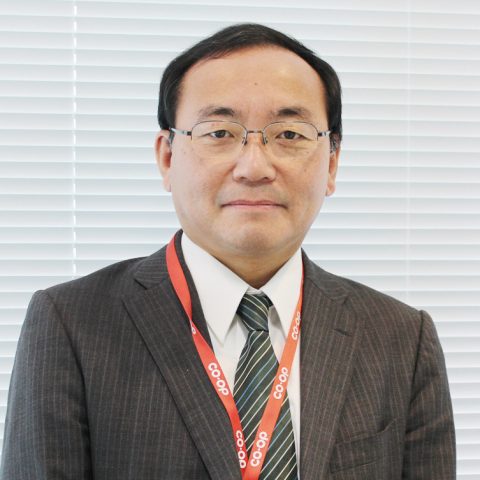 Merchandising Division Procurement Management Staff, Japanese Consumers’ Co-operative Union (JCCU) Satoshi Matsumoto joined Japanese Consumers’ Co-operative Union (JCCU) in 1988. He has extensive experience in logistics management, sales and marketing, and product merchandising for CO・OP private brand products. 2010~ Joint development Promotion Department Manager 2012~ Tohoku Region Branch Manager 2014~ Marine Products Department Manager 2016~ Perishable Ingredient Promotion General Manager 2017/7~ Current position Satoshi has been in charge of research and development of JCCU’s sustainable seafood program, promoting sustainable products such as MSC/ASC certified products and supporting improvement projects. 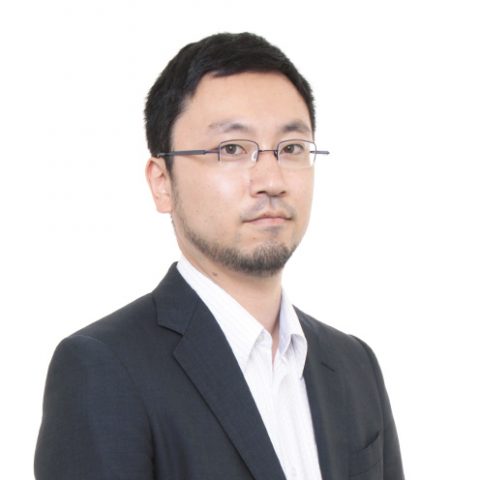 Manager, Sustainability Promotion Department, Rakuten, Inc. / Researcher, Future Merchant Design Laboratory, Rakuten Institute of Technology Takayuki joined Rakuten after honing his professional skills as a researcher in NGOs and think tanks. He took the helm of Rakuten Group projects focused on sustainability strategy development, ESG information disclosure, and activating social innovation through multi-stakeholder collaboration starting in 2015. Takayuki oversaw the launch of the “Earth Mall with Rakuten” project, an internet marketplace focused on sustainable products, in 2018. Through this project he collaborates with consumers, Rakuten shop owners and merchants, academics, and other businesses to promote certification products such as MSC, ASC, FSC, and RSPO, while driving the creation of a platform for the development of products that lead to a sustainable society via internet shopping. Specialist in Environmental and Forest Engineering.
|
C-1: An Introduction to Global Seafood Certification SchemesFacilitator◇ Wakao Hanaoka Speaker◆ Herman Wisse ◆ Kozo Ishii ◆ Koji Yamamoto ◆ Jane Bi ◆ Susan Marks C-1: An Introduction to Global Seafood Certification SchemesSeafood certifications are quickly expanding in Japan. We are inviting scheme owners on the stage to give an overview of each certification and discuss how businesses can improve their procurement practice by utilizing certified products and its tools. Download hereFacilitator CEO, Seafood Legacy After working in marine conservation in the Maldives and Malaysia, Wakao joined Greenpeace Japan as a Senior Ocean Campaigner, where he started the Sustainable Seafood Market Project. Later, Wakao founded Seafood Legacy in Tokyo in 2015, to build Japan-centric solutions for seafood sustainability by addressing the importance of domestic business-led initiatives to create a driving force for regulatory reforms. Wakao is also an Expert Advisor of the Cabinet Office Council for Promotion of Regulatory Reform Fishery Working Group, a Committee Member of the Fishery Agency Wide Sea-area Fisheries Adjustment Commission, and a Collaborator member of the Conservation Alliance for Seafood Solutions (CASS). He is also a steering board member of Global Sustainable Seafood Initiatives (GSSI) and a member of Global Seafood Rating Alliance (GSRA). Speaker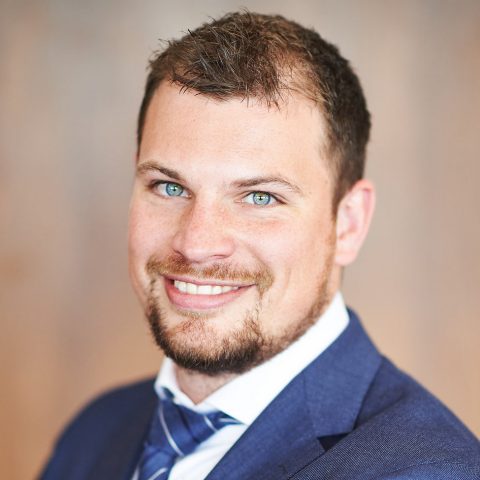 Managing Director, Global Sustainable Seafood Initiative (GSSI) As Managing Director of the Global Sustainable Seafood Initiative (GSSI); a global, Public-Private Partnership, working towards more sustainable seafood for everyone, Herman Wisse is focused on implementing sustainable change across the global seafood sector by leveraging the collective influence of the GSSI Global Partnership. During his tenure at GSSI, Herman was responsible for project managing the development of the GSSI Benchmark Tool and has grown GSSI into the premier multi-stakeholder, pre-competitive partnership creating global alignment in seafood certification. Prior to this, Herman worked as a consultant for Ahold Delhaize and as the lead consultant for the UN FAO on the development of an Evaluation Framework for the FAO Technical Guidelines for Aquaculture. Herman graduated with distinction from his MSc degree in Aquaculture and Marine Resource Management at Wageningen University. 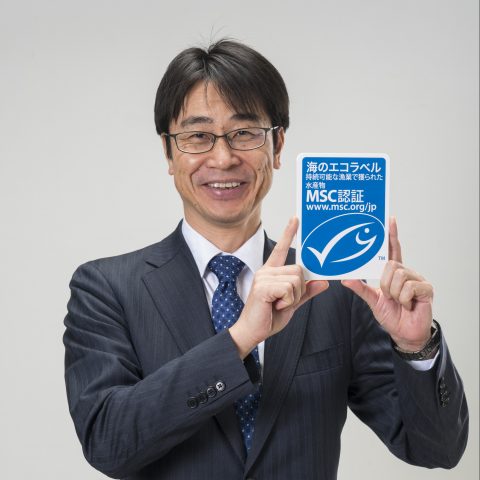 Program Director Japan, Marine Stewardship Council (MSC) After graduating from National Fisheries University, Kozo worked in the food industry for several years before acquiring his MPA from the Indiana University, School of Public and Environmental Policy in Bloomington, USA. Prior to joining the MSC, Kozo was a senior research consultant at the International Development Center of Japan, leading the development of resource management plan and regional development plan in developing countries. Kozo is one of the founding members of MSC Japan office and has been a director of the Japan office since 2007. As a program director, he is responsible for raising awareness of MSC and promoting its programs among key stakeholders. MSC is an international non-profit organization which promotes sustainable fishing practices by using ecolabel and fishery certification program for the health of the global seafood resources. 12% of the global marine wild catch is now MSC certified. 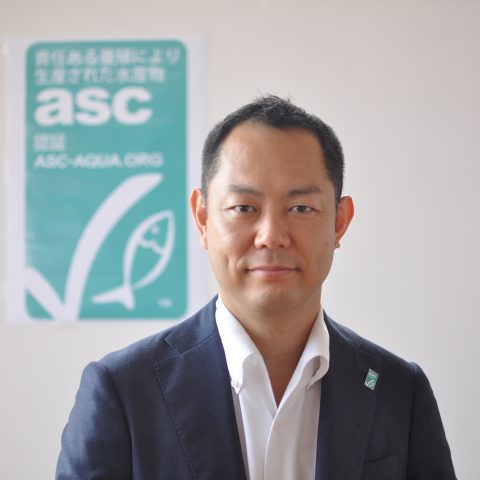 General Manager, Aquaculture Stewardship Council (ASC) Koji has marine biology degree from Bangor University and aquaculture master degree from James Cook University. Prior to joining the ASC, he had worked in over 20 countries as a FAO aquaculture specialist and The Network of Aquaculture Centres in Asia-Pacific (NACA) staff to implement sustainable aquaculture development projects. He also took a part on developing FAO “Technical guidelines on aquaculture certification”, which was published in 2011. Since September 2017, he has been working as a general manager of ASC Japan to promote environmentally and socially responsible aquaculture in Japan. 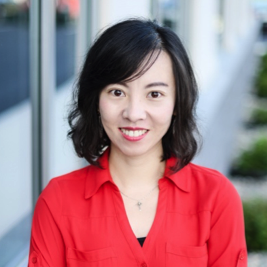 Asia Business Development Director, Global Aquaculture Alliance (GAA) Jane Bi received her M.A. from Missouri State University with an emphasis on Intercultural Communication and a B.A. from Ocean University of China. After completing her degree, she joined the Global Aquaculture Alliance (GAA) to work on with the Asia area on aquaculture sustainability and has since strengthened her passionate for seafood supply chain improvement and seafood industry social accountability. She is currently the Asia Business Development Director for GAA, focusing on growing market acceptance of the Best Aquaculture Practices (BAP) seafood sustainability certification program and providing sustainable seafood solutions for retailers, foodservice companies, e-commerce platforms and hotel & restaurant chains in China and other Asian marketplaces. She takes a special interest in consumer education on sustainable seafood in China as she believes in consumer empowerment, transparency and new media’s empowering potential. 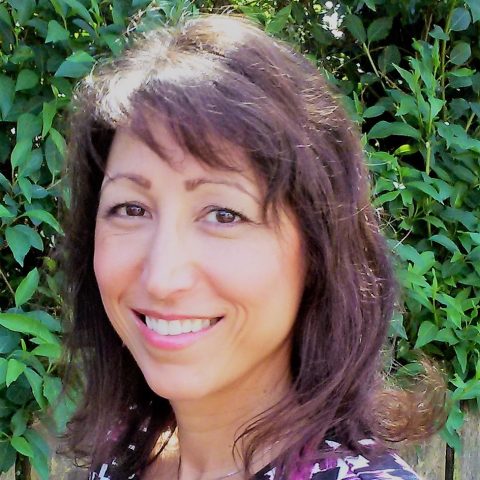 Sustainability and Certification Advisor, the Alaska Seafood Marketing Institute (ASMI) Susan is the Sustainability and Certification Advisor for the Alaska Seafood Marketing Institute (ASMI). She serves as the internal leader and subject matter expert on sustainability and certification in the seafood marketplace, represents Alaska at industry conferences and speaks to relevant issues that help leverage and expand ASMI's sustainability thought leadership. During her tenure with ASMI she directed Alaska's Responsible Fisheries Management (RFM) Certification Program for seafood sustainability where she implemented strategies for global awareness and recognition and managed all marketing, outreach and communications. Susan's seafood career started with the Marine Stewardship Council (MSC) as a Commercial Manager where she promoted the use of the MSC ecolabel in the North American market. She later joined the Monterey Bay Aquarium's Seafood Watch program where she oversaw the business relationships with major seafood buyers in the retail and foodservice sectors. A Seattle native, Susan has a BA in Communications from Washington State University. |
| 14:20▼15:30 |
M-2: Sustainable Seafood Across Industries - Changing the Corporate CafeteriaFacilitator◇ Daisuke Matsui Speaker◆ Kosuke Kino ◆ Go Shibata ◆ Kazuya Yoneima M-2: Sustainable Seafood Across Industries - Changing the Corporate CafeteriaSustainable seafood market is quickly growing in Japan, not just in the retail sector. Since the beginning of this year, many companies and schools started introducing sustainable seafood at their cafeterias, where they serve thousands of people every day. We are inviting some of the leading companies in Japan which have started serving sustainable seafood and their catering companies to discuss the norm in the market. Download hereFacilitator Business Engagement Manager, Seafood Legacy Born in Tsuruga city, Fukui prefecture. Growing up in a coastal city, his childhood experience made him realize that seafood resource around Japan is depleting. In 2015, he opened his first restaurant in his hometown Fukui, which only served MSC/ASC certified seafood. This initiative was first in Asia. In 2017, he opened “Sustainable seafood restaurant BLUE” in Tokyo, with a rigorous procurement policy set with NGO and experts. As a business engagement manager at Seafood Legacy, Daisuke is working with domestic business players to support their sustainable seafood agenda as well as designing a sustainable solution for both producers and buyers. Learning from success stories from overseas, he hopes to provide innovative and forward-looking consulting service. Speaker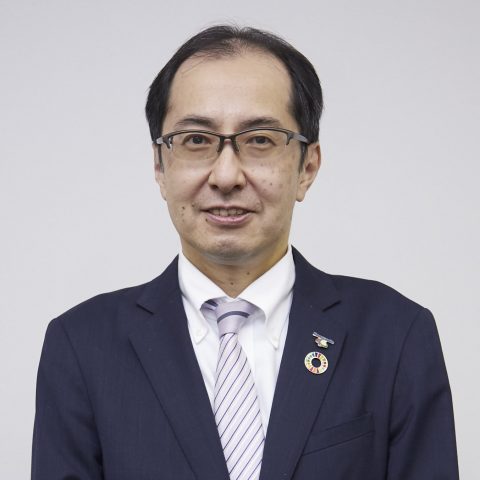 Manager, Program Management Section, CSR & Citizenship Department, Groupwide Brand Communications Division, Panasonic Corporation Kosuke started his career at Panasonic Corporation in 1988. Since then, he worked in corporate sales division for audio visual communication system, concept design and development of Panasonic Center Tokyo and RiSuPia (an interactive children’s museum of physics and mathematics), and event planning and operation of Eco-Pro and CEATEC exhibitions. Kosuke has been working as a manager of Program Management Section, CSR & Citizenship Department since 2016. 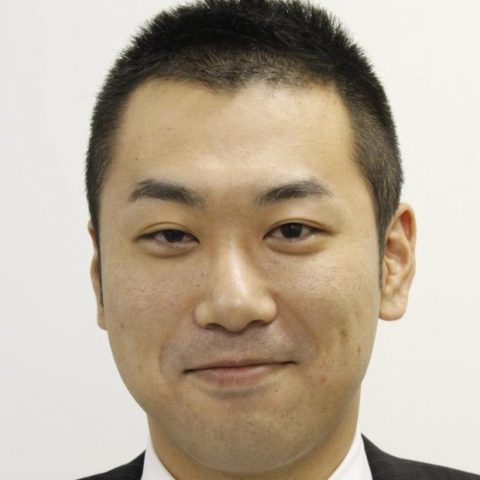 General Manager, Product Quality Center Procurement and Supply Chain, AIM SERVICES CO., LTD.
2007: Joined Aim Services 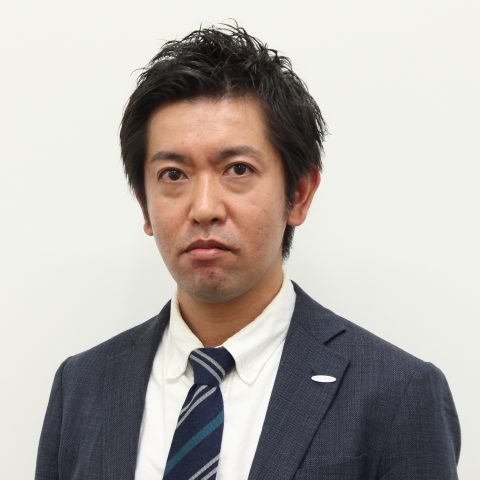 Acting Director, Product Department, Green House Co., Ltd. Joined Green House Co., Ltd. in 2001. Kazuya worked as a buyer of vegetables and other items in the Purchasing Department for roughly 10 years. After he took charge as the Area Manager who manages employee cafeterias of major corporations in Tokyo, he joined the Product Headquarters in October 2014, and changed to current position in April 2017. |
A-2: How IoT is Changing the Global Seafood IndustryFacilitator◇ Kaori Fujita Speaker◆ Keiichi Yamamoto ◆ Masayoshi Fukushima ◆ Ken Fujiwara ◆ Aritsune Kawabe ◆ Mamiko Hayasaka A-2: How IoT is Changing the Global Seafood IndustryFrom traceability to production efficiency, IoT technology might be the solution. Experts from different fields are bringing their knowledge to change the seafood industry. Download hereFacilitator Senior Editor, Nikkei ESG / Producer, Nikkei ESG Economic Forum Kaori was born in Uozu-city, Toyama prefecture. After graduating from the department of physics, faculty of science, the University of Tokyo, she started her career at Nikkei Business Publications. Prior to the current position, Kaori was an editor of Nikkei Electronics, vice editorial chief of National Geographic Japan, and editorial committee of Nikkei Ecology, a magazine for corporates’ environmental management. She is specialized in biodiversity, natural capital, ESG investment and information disclosure, SDGs, and regional revitalization. Kaori is also a visiting professor at Toyama University and serves as a member of the committee of SDGs Stakeholders’ Meeting, and the committee of Research Group of environment growth engine of Ministry of the Environment. She published “Biodiversity and Natural Capital Management in SDGs and ESG age” in October 2017. Speaker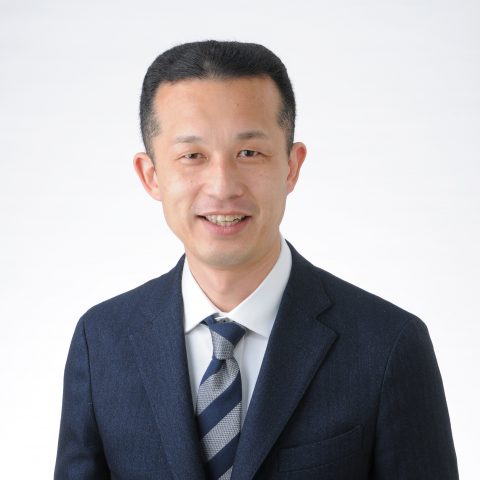 Chief Manager, ICT and Regional Revitalization Promotion Office, NTT DOCOMO, INC. Born in Hiroshima, Keiichi joined NTT in 1995 and transferred to NTT DOCOMO in 2002. At NTT DOCOMO, he worked at customer solutions for corporate sales. In December 2011, he was appointed as a leader of Reconstruction and Renovation Support for Tohoku Project and worked in the affected regions of the Great East Japan Earthquake such as Iwate, Miyagi, and Fukushima prefectures. Since March 2016, he has been engaged in aquaculture of those areas, conducting onsite experiments of “Fishery + d” at oyster and seaweed farms in Higashi-Matsushima, Miyagi prefecture. Based on the results from the experiments, he launched an ocean climate monitoring system, “ICT Buoy Solution” in 2017. Keiichi’s philosophy is “Think at the site,” and has been committed to creating services for solving social issues, mainly for the primary sector, by using mobile technology and IT. He enjoys building relationship with people over good drinks and conversations. 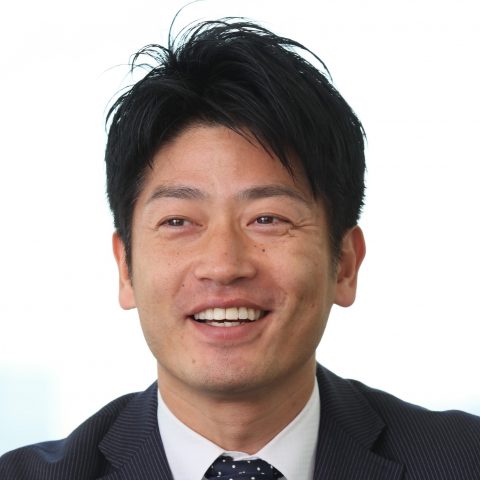 IoT Business Development Division, Local Development Support Office, Manager, KDDI CORPORATION After graduating from National Institute of Technology Hachinohe College with an electrical engineering degree in 1998, Masayoshi joined DDI (currently KDDI) and worked on establishing communications network in Japan. In 2012, he transferred to Tohoku region reconstruction team and worked in the affected regions of the The Great East Japan Earthquake. Since 2017, he has been working on IT/IoT development and implementation project for regional revitalization. He has also been engaged in fisheries-related projects such as Smart Fishery Project (2016), Mackerel Aquaculture Revitalizing Project (2017), and Tuna Smart Aquaculture IoT System Project (2018). 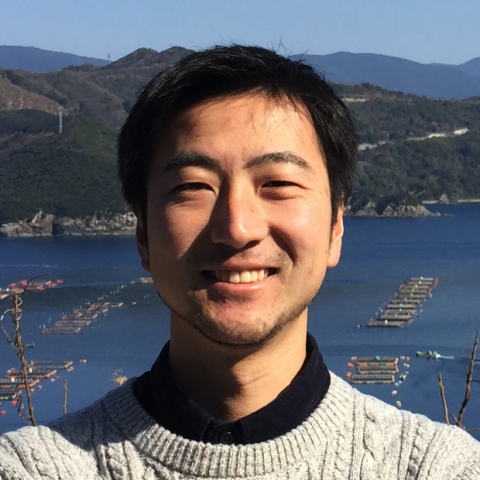 Chief Executive Officer, UMITRON Ken is a co-founder of UMITRON, an innovative data service platform for the aquaculture industry, which provide a monitoring system for aquaculture powered by IoT and artificial satellite. In 2017, they launched growth management system, UmiGarden, and provided the service to Red sea bream, yellowtail, tuna and salmon farm. Prior to founding UMITRON, Ken was a research engineer at JAXA, and worked in several international projects such as astronomical satellite research and asteroid exploration. Later, he joined Mitsui Bussan, and led venture investment on North American agricultural industry. Ken has a Master in Mechanical and Aerospace Engineering from Tokyo Institute of Technology, and MBA from Haas School of Business, University of California Berkeley. 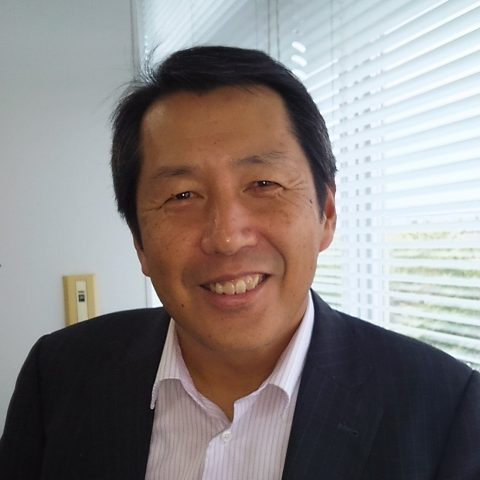 Board Director and General Manager, Satellite Information Service Department, IHI Jet Service Co.,Ltd. Aritsune joined Ishikawajima-Harima Heavy Industries Co., Ltd., Aerospace division in 1982. In 2009, he started developing satellite vessel tracking service. Later in 2017, he transferred to IHI Jet Service, a subsidiary company of IHI Co., Ltd., to expand the project. The company also represents Canadian AIS provider ExactEarth. Aritune is currently working on developing catch documentation system by utilizing the vessel tracking system. 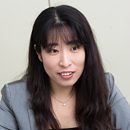 Manager, Digital Platform Division, NEC Corporation Mamiko joined the company as a software development engineer and experienced several launches and withdrawals of businesses while in charge of product development, promotion, and marketing of network related software. From 2015, Mamiko transferred to a department that considers business development for several years in the future, and was in charge of business development planning and implementation support. However, through working in a position that supports business development, Mamiko began to feel the desire to develop ideas as a business owner herself, and in 2016, she won her business proposal of introducing ICT in the fishery industry in the company's business idea contest. While considering the introduction of ICT in the fishery industry and working as the leader of the project to develop it as a business, in 2017, NEC began collaborating with Nippon Fishery, and co-developed an "aquaculture fish size measurement automation solution". NEC is currently working on developing a service to officially bring this solution to the market in the fiscal year of 2019. |
B-2: From Local Fisheries to Inbound VisitorsFacilitator◇ Yoshikatsu Ikuta Speaker◆ Hiroko Sasaki ◆ Kazuhiko Ono ◆ Satoko Seino ◆ Shinsuke Ishii B-2: From Local Fisheries to Inbound VisitorsAs 2020 Olympics approaches, inbound tourism is exponentially expanding its market. One of the highlights of Japan experience for foreigners is our food culture. In this session, we are inviting experts from the culinary and service industry to discuss how we can Omotenashi (welcome with hospitality) visitors with sustainability in mind. Download hereFacilitator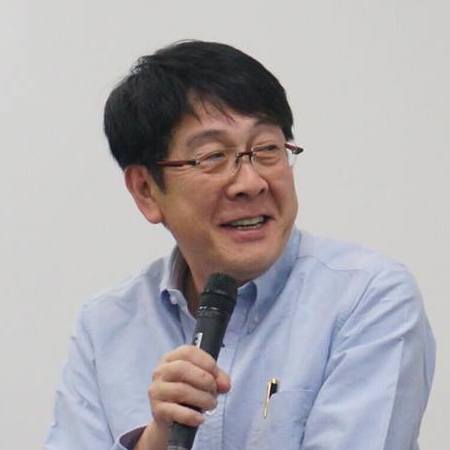 3rd Generation President, Suzuyo (Toyosu Tuna Intermediate Wholesaler) / Representative Director, Seafood Smart Yoshikatsu is the 3rd generation president of Suzuyo, an intermediate tuna wholesaler in Tsukiji fish market. He also serves as a representative director of Seafood Smart, an organization which aims to increase the awareness about sustainable fisheries. Yoshikatsu lectures at a variety of seminars and acts as spokesperson and influencer on social media, radio, and television shows. He has also published several books about seafood sustainability and Japan’s fish eating culture. His motto is “there will be more fish if we eat smarter.” Speaker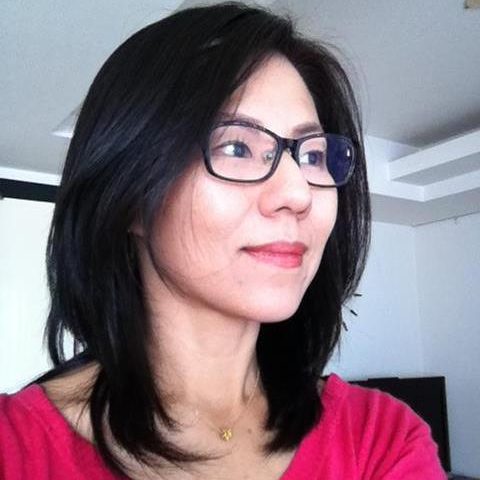 Food Journalist / President, Chefs for the Blue Hiroko studied international relationship in Japan, journalism and gastrology in the US, and cultural anthropology in Hong Kong, and now she’s writing mainly about food culture, restaurants and cuisine on magazine, newspaper, and web. She is an advisory committee of World Gastronomy Institute (WGI). Chefs for the Blue is an organization of top 30 Tokyo-based chefs, and has been advocating sustainable seafood. They are hosting various events such as collaboration dinner with MSC, talk session, and food truck events since 2017. In March 2018, Chefs for the Blue became the first champion of Seafood Co-Lab competition hosted by SeaWeb. 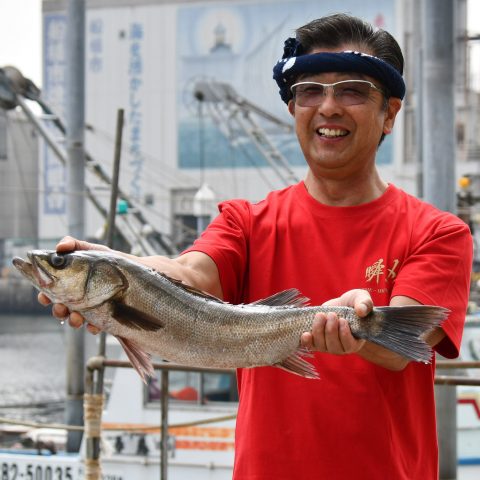 CEO, Kaiko Bussan
1959: Born in Funabashi-city, Chiba prefecture. 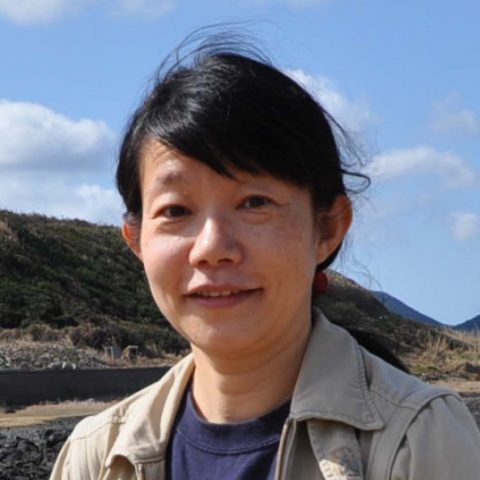 Associate Professor, Department of Urban and Environmental Engineering, Graduate School of Engineering, Kyushu University Dr. Satoquo Seino is an associate professor in the Department of Urban and Environmental Engineering, Graduate School of Engineering, Kyushu University, Japan. She graduated fishery course of undergraduate and graduate Schools of the University of Tokyo. Her research interests include coastal and riverine environmental conservation, ecological engineering, consensus building, endangered species habitat protection and restoration, community-based management, environmental planning and policy, and marine protected areas (MPAs). She develops the traceability system of well managed fishery products with fishery cooperatives, engineers and consumers. She is an advocate for a network of MPAs along the coast of Japan, with a special interest in the Tsushima Current which flows northward between Japan and Korea. 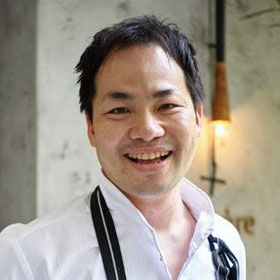 Chef and Owner, Sincere / Lead Chef, Chefs for the Blue After working in some of the leading restaurants in Tokyo, Shinsuke moved to France to continue his culinary career in France, where he worked at two and three Michelin star restaurants. Upon on his return, he opened “Sincere” in Tokyo. His representation incorporates traditional French solid technique and Japanese seasonal twist. He is also known as a seafood enthusiast, Sincere's course menu usually has five different kinds of seafood in the season. He is a leading chef of the Chefs for the Blue. |
C-2: Approaching Seafood Sustainability with Seafood Ratings and Improvement ProjectsFacilitator◇ Shunji Murakami Speaker◆ Minako Iue ◆ Ryan Bigelow ◆ Tom Pickerell ◆ Thomas James Kraft C-2: Approaching Seafood Sustainability with Seafood Ratings and Improvement ProjectsThere are multiple ways to work on seafood sustainability. In this session, we are discussing how companies can improve their procurement practices through different approaches. Download hereFacilitator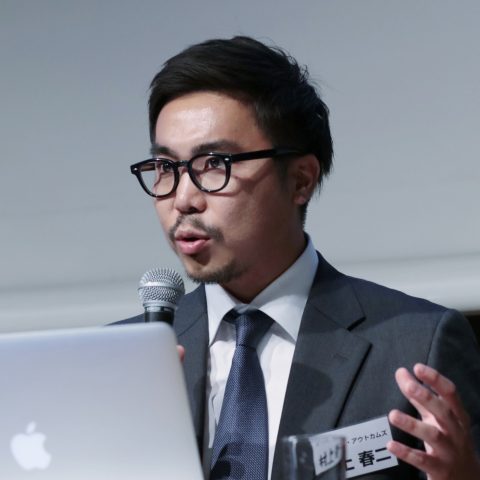 Japan Program Director, Ocean Outcomes As Japan Program Director at Ocean Outcomes (O2), Shunji leads the overall strategic development and coordination of O2's Japan Program. Based in Tokyo, he works closely in cooperation with Japanese fishery communities, seafood supply chain stakeholders, other NGOs, and government to ensure prosperity of both aquatic ecosystems and local fishing communities alike. He is also known as the first person to launch Fishery Improvement Project as well as Aquaculture Improvement Project in Japan, in collaborations with markets, fisheries, NGOs and other stakeholders to help the fishery to be more sustainable in ways that benefit to the community. Speaker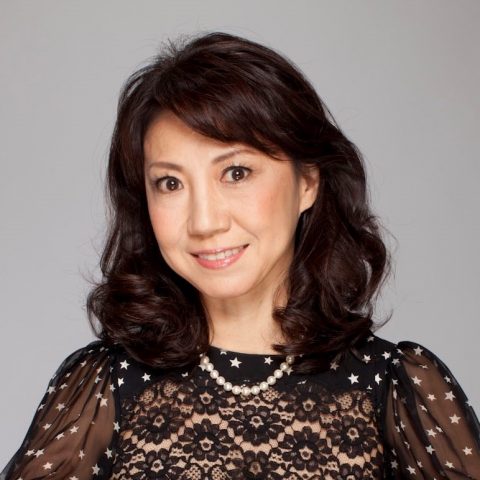 President, Sailors for the Sea Japan Sailors for the Sea Japan was found in 2013 as an affiliate organization of Sailors for the Sea, a marine conservation NGO founded by David Rockefeller Jr. Sailors for the Sea Japan promotes sustainable oceans and future through their core programs: “Blue Seafood Guide,” a seafood rating scheme, “Clean Regattas,” an eco-certification scheme for marine sports which is adopted in world yacht competition, and “Kelp,” a marine education program for kids. With over 40 business and municipality partnerships, such as Mie prefecture, Kyoto University, and Keio University, Minako hopes to build a sustainable society. Adjunct faculty member of Kyoto University Graduate School Senior Researcher of Keio Research Institute at SFC Columnist at Forbes Japan and 25 ans 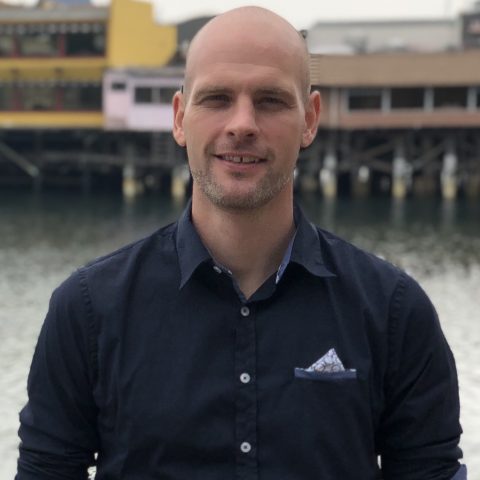 Senior Program Manager, Seafood Watch Ryan oversees implementation of Seafood Watch public-facing activities and amplification of business, science and policy strategies. The senior manager sits on the Seafood Watch Leadership Team and oversees all program operations. Ryan oversees the Seafood Watch Program Engagement team responsible for social media, events, technical platforms, online content, consumer guides, newsletters and the Conservation Partnership program. Ryan also represents Seafood Watch among the NGO community, including broader collaborations working to promote sustainable seafood, such as the Conservation Alliance for Seafood Solutions and the Global Seafood Ratings Alliance. Before joining the Monterey Bay Aquarium, Ryan lived and worked in Japan, translating and interpreting for the Japanese government during the World Exposition and lead up to the Convention on Biological Diversity. Ryan has an MA in International Environmental Policy from the Middlebury Institute of International Studies.  Global Tuna Director, Sustainable Fisheries Partnership(SFP) Dr. Tom Pickerell is Sustainable Fisheries Partnership’s (SFP) Global Tuna Director. Tom leads SFP’s tuna work programs including the fresh & frozen tuna supply chain roundtable. Before joining SFP, he was the Technical Director at Seafish, the UK Seafood Industry Authority. Previous to that role, Tom was the Senior Science Manager for the Seafood Watch program at Monterey Bay Aquarium in California. Earlier, Tom worked at the Shellfish Association of Great Britain (SAGB), where he managed the UK Shellfish Industry Development Strategy (SIDS) and later became the Director; WWF UK, where he was the Fisheries Policy Officer; and Defra, where he held a variety of policy and strategy roles in fisheries and aquaculture. He has a degree in Marine Biology, a master's degree in Analytical Biology, and a PhD in shellfish aquaculture. 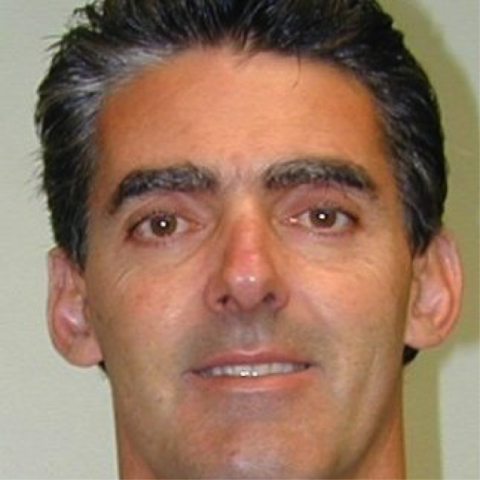 Managing Director, Norpac Fisheries Export Managing Director of Norpac Fisheries Export with 30 years of seafood experience, President of Insite Solutions, a provider of electronic seafood traceability systems covering the full supply chain, with installations in various countries from Latin and North America to SE Asia (Bahamas, Costa Rica, Indonesia, Mexico, Peru, USA). Formerly a Certified Public Accountant with Price Waterhouse. Lead stakeholder with the industry-run Comprehensive Tuna Fishery Improvement Project in The Republic of the Marshall Islands and the Indonesia Drop-Line Snapper Fishery Improvement Project. Advisor to The Prince’s Charities Marine Programme, a member of Seafood Watch Multi-Stakeholder Group, Board Member of the Blue Water Fisherman’s Association, and a “Seafood Champion-2012” with the Conservation Alliance for Sustainable Seafood. |
| 15:40▼16:50 |
M-3: Potential of ESG Investment in the Seafood IndustryFacilitator◇ Kaori Fujita Speaker◆ Mariko Kawaguchi ◆ Takeshi Mizuguchi ◆ Yasunobu Hasegawa ◆ Shinya Yamamoto M-3: Potential of ESG Investment in the Seafood IndustryIn recent years, ESG investment is quickly attracting the global investors' attention. The amount of investment is said to be about 2,500 trillion yen, which is about one-quarter of the global investment. In the global seafood industries, many companies are facing problems such as overfishing, IUU fishing, and illegal activities on the supply chain including forced labor and human trafficking. In this session, we are discussing the global seafood industry through ESG experts' point of view. Download hereFacilitator Senior Editor, Nikkei ESG / Producer, Nikkei ESG Economic Forum Kaori was born in Uozu-city, Toyama prefecture. After graduating from the department of physics, faculty of science, the University of Tokyo, she started her career at Nikkei Business Publications. Prior to the current position, Kaori was an editor of Nikkei Electronics, vice editorial chief of National Geographic Japan, and editorial committee of Nikkei Ecology, a magazine for corporates’ environmental management. She is specialized in biodiversity, natural capital, ESG investment and information disclosure, SDGs, and regional revitalization. Kaori is also a visiting professor at Toyama University and serves as a member of the committee of SDGs Stakeholders’ Meeting, and the committee of Research Group of environment growth engine of Ministry of the Environment. She published “Biodiversity and Natural Capital Management in SDGs and ESG age” in October 2017. Speaker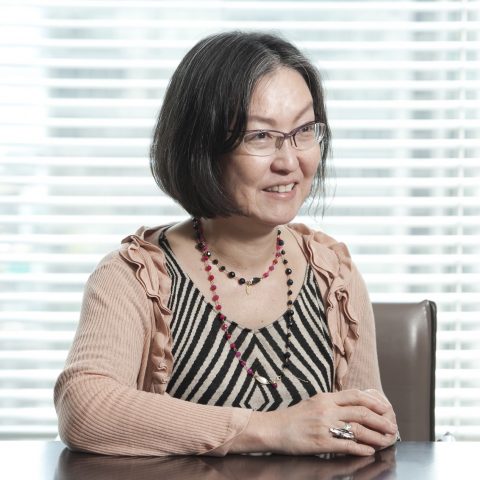 Chief Researcher, Daiwa Institute of Research Ltd. Since 1998, has been engaging in research and study of CSR/CSV, sustainable finance/ESG Investment social business ethical consumption. From April 2010 to June 2011 worked as a head of CSR group at headquarter office of Daiwa Securities Group. She also serves as a Board member of Global Compact Network Japan; Chief Executive of Japan Sustainable Investment Forum; Councilor of Plan International Japan Board member of Japan Ethical Initiative. 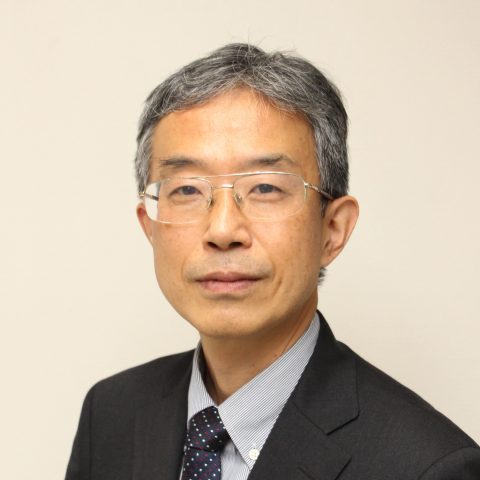 Professor, the Faculty of Economics, Takasaki City University of Economics After working at an audit firm as a certified public accountant, he became a lecturer at Takasaki City University of Economics in 1997 and has been a professor since 2008. His measure area of study is responsible investment and non-financial information disclosure. He was appointed as a chair of working group of green bond and a member of ESG finance committee both set by the Ministry of Environment. He is the author of ‘Responsible Investment – changing future by financial flow’ and ‘ESG Investment – the new form of capitalism’ (both in Japanese). 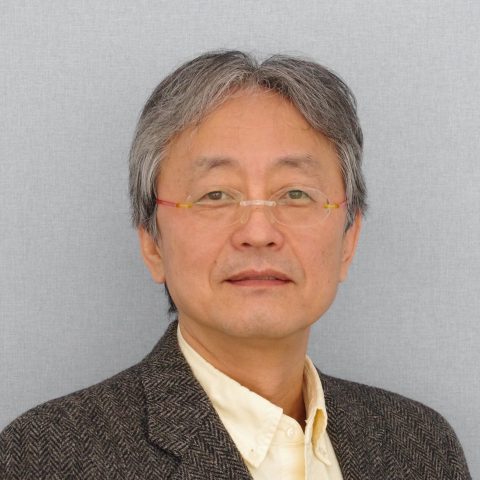 General Manager, Direct Communication Group, CSR Management Public Communications Dept., Ajinomoto Co., Inc. Joined Ajinomoto Co., Inc. in 1986. Thermodynamic & organic chemistry researcher. In charge of launching of Bakery business in Ajinomoto group, raw material procurement, quality assurance etc. In charge of sustainability issue from 2012. In order to realize a sustainable society, I am constantly thinking about how companies and individual activities should be. 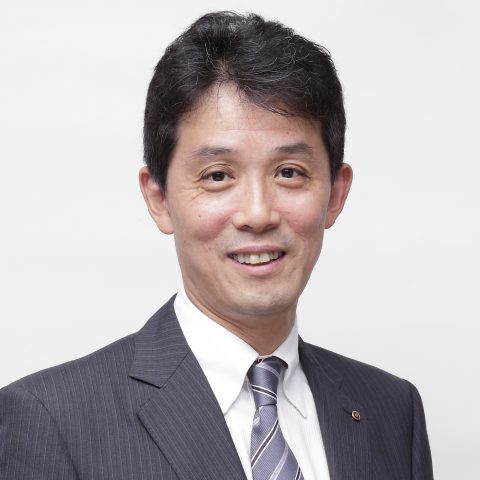 Director, Managing Executive Officer, and CFO, Nippon Suisan Kaisha, Ltd.
Apr 1985 Start working for Nippon Suisan |
A-3: How Industry-led Improvement Projects are Changing the Status of Global FisheriesFacilitator◇ Shunji Murakami Speaker◆ Kumie Wama ◆ Kotaro Wakiguchi ◆ Kristin Sherwood ◆ Shingo Suzuki A-3: How Industry-led Improvement Projects are Changing the Status of Global FisheriesThe industry engagement in fishery and aquaculture improvement project is quickly increasing in Japan. Inviting the stakeholders of improvement projects we are discussing how Japanese business leaders can further accelerate this movement in Japan. Download hereFacilitator Japan Program Director, Ocean Outcomes As Japan Program Director at Ocean Outcomes (O2), Shunji leads the overall strategic development and coordination of O2's Japan Program. Based in Tokyo, he works closely in cooperation with Japanese fishery communities, seafood supply chain stakeholders, other NGOs, and government to ensure prosperity of both aquatic ecosystems and local fishing communities alike. He is also known as the first person to launch Fishery Improvement Project as well as Aquaculture Improvement Project in Japan, in collaborations with markets, fisheries, NGOs and other stakeholders to help the fishery to be more sustainable in ways that benefit to the community. Speaker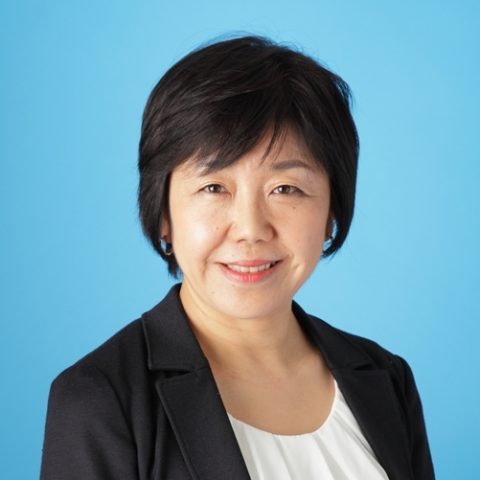 Vice President, Corporate Affairs, Seiyu GK Born in Fukuoka Prefecture. Entered Seiyu GK in 2009, taking the position of Senior Director at the Public Relations Office of the Corporate Communications Division. In September 2015, assumed the position of Vice-President at the Corporate Communications Division of Seiyu GK. 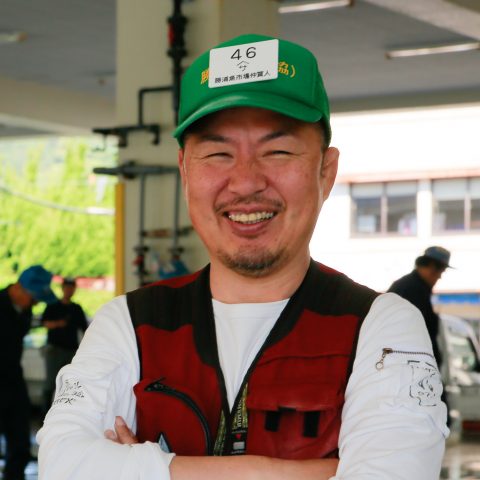 4th Generation President, Yamasa Wakiguchi Tuna Company Kotaro is the 4th generation of Yamasa Wakiguchi Tuna Company, which has been operating as an intermediate wholesaler in Nachi-Katsuura, Wakayama prefecture, since 1897. Born and raised in the beautiful nature of Wakayama, Kotaro loves the nature. For the past 30 years, he has been refining his knowledge of on-site seafood business through tuna auctions. The Yamasa Wakiguchi Tuna Company developed unique refrigeration technology which keeps the tuna fresh and contributing to solve the food loss issue on the supply chain. The company also facilitate the information exchange and networking opportunities for producers and supply chain. In 2012, Yamasa Wakiguchi Tuna Company passed MSC pre-assessment for Nachi-Katsuura tuna. The following year, the company announced its sustainable procurement policy and banned IUU fishing origin and sustainably caught tuna. Together with Ocean Outcomes, Yamasa Wakiguchi Tuna company is working on Wakayama Albacore Tuna FIP. 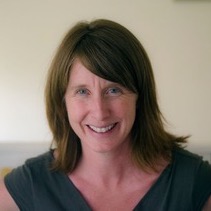 Program Director, FishChoice Kristin Sherwood is a Program Director at FishChoice, and her primary role is leading FisheryProgress, a newly released website that provides consistent, credible information about fishery improvement project progress. Kristin also helps to build organizational strategy, monitoring/evaluation and foundation relationships at FishChoice. Kristin has more than 15 years of experience in international marine and coastal conservation, with a specific focus on strategic planning, capacity building, partnership development and grant-making. Before joining FishChoice, Kristin ran the Conservation Partnership Initiative for The Nature Conservancy, and prior to that, she was a Program Officer at the David and Lucile Packard Foundation. Earlier in her career, she worked with IUCN’s marine program and spent a number of years doing research, supporting small non-profits and diving in the Pacific. Kristin holds a Master’s degree in Environmental Resource Management from James Cook University in Australia. 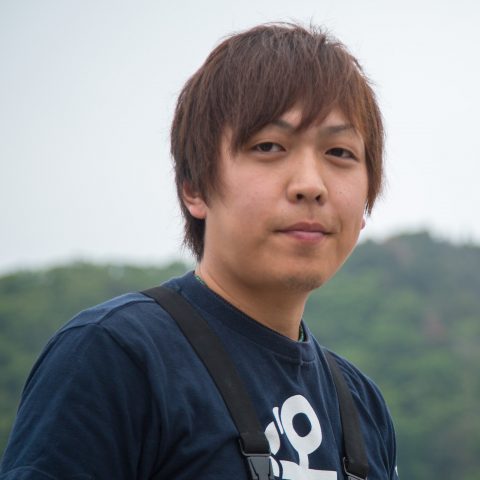 Marukin Co.,Ltd. In Onagawa, Miyagi prefecture, Shingo works along with his father and grandfather to run a marine products processing company which handles silver salmon, oyster, and scallops from the area. Their company began working to farm silver salmon in 1977, and they were pioneers; the first in the industry to succeed in turning such a venture into a business. Over 40 years the company has worked to accomplish every step of this process themselves, from farming the fish to processing it. Their branded traceable silver salmon ”Gin Ou” is popularly used by retailers restaurant chains. Shingo established the Miyagi Onagawa Silver Salmon AIP (Aquaculture Improvement Project) to help spread the word about silver salmon aquaculture in Miyagi throughout Japan and the world. He is also working together with Ocean Outcomes to gain ASC certification. Shingo and the other young fishermen in Miyagi have come together to form the Fisherman Japan Company, working to improve the image people have of fishing and fisheries, and to train new workers. He also collaborates with other industries and raises the next generation of fishermen. |
C-3: Combating IUU Fishing on National and Industry Level - Challenges of Importing CountriesFacilitator◇ Marta Marello Martin Speaker◆ Yukihiro Misawa ◆ Traci Linder ◆ Jun Sakai ◆ Yoshihiro Koyano C-3: Combating IUU Fishing on National and Industry Level - Challenges of Importing CountriesJapan is the 3rd biggest seafood importer. However, our regulations and policy on are not as robust as EU and the US. This leaves Japan in a great risk of unknowingly importing seafood with problematic backgrounds. We are inviting traceability experts from Japan and the world to discuss how businesses can keep their supply chain clean and transparent. Download hereFacilitator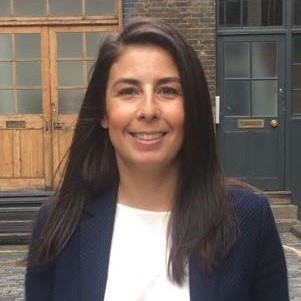 Ocean Governance Director, Global Oceans Team, The Nature Conservancy Marta has been directing the Ocean Governance programme at the Conservancy since 2016. She is an environmental lawyer with over 10 years of experience protecting nature through international and European Union policy and law. For over 6 years she has worked to tackle the issue of illegal, unreported and unregulated fishing globally, and helped to establish groundbreaking legislation to protect the deep sea. She works with public and private partner organisations around the world to enable accurate fisheries management decisions and monitoring. Marta holds a Masters degree in Environmental Policy and Management from the University Carlos III of Madrid, Spain; and a Masters in Energy and Environmental Law from the Catholic University of Leuven, Belgium. The Nature Conservancy is committed to conserving and sustainably managing our ocean, seas and marine resources. We are working in Europe, Africa, Asia, North America, South America and Australia in order to develop this global strategy. Speaker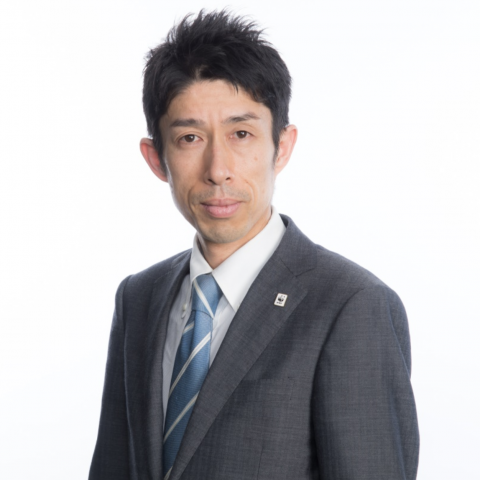 Seafood Market Manager, WWF Japan Prior to joining WWF Japan, Yukihiro worked in several business development and implementation projects. At WWF Japan, he focuses on building a sustainable society for future generations by supporting business initiatives on sustainable production and procurement. In order to further accelerate the movement, Yukihiro utilized Global Dialogue on Seafood Sustainability (GDST) to develop transparency in Japanese seafood supply chain. 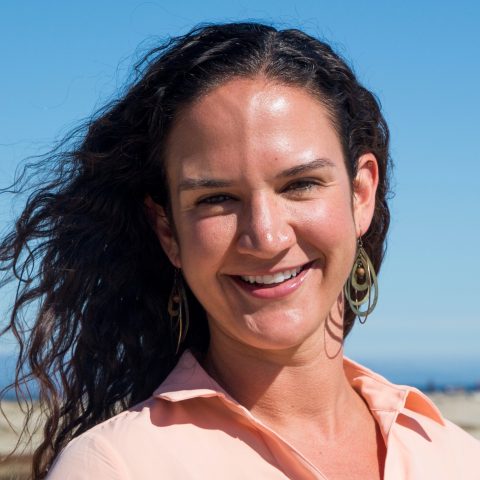 Senior Project Manager, Traceability Division, FishWise As Senior Project Manager within the FishWise Traceability Division, Traci creates resources that help a diverse range of stakeholders improve seafood traceability and reduce illegal, unreported, and unregulated (IUU) product from seafood supply chains. She leads the traceability work for some of FishWise’s largest industry partners enabling them to be standout leaders, and works within global traceability initiatives such as the Seafood Alliance for Legality and Traceability (SALT). Traci holds a Bachelor of Science in biology from the University of California San Diego, and a Master of Science in biology from the University of California San Diego / Scripps Institution of Oceanography. Traci has been conducting fisheries and aquatic research for over ten years, spanning from mariculture studies in Costa Rica to large-scale fisheries conservation projects in California. She also has experience in policy work and communicating policy and scientific research to the general public. Traci’s experience in both science and policy has shown her the importance of strong communication and collaboration for effective ocean resource management. 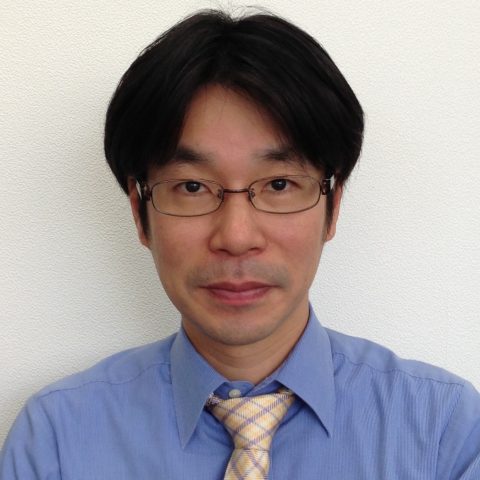 Food Marketing Research and Information Center Born in 1968. Jun has been working at the Food Marketing Research and Information Center since 1998. He has been in charge on development and implementation of food traceability system since 2002, focusing on field research and guideline development for Ministry of Agriculture, Forestry, and Fisheries’ Food Safety and Consumer Affairs Bureau and Fisheries Agency. His previous projects are: - Miyagi prefecture oyster traceability system development and implementation support (supported by Ministry of Agriculture, Forestry, and Fisheries, 2002) - "Handbook for introduction of Food Traceability Systems” and category guideline (supported by Ministry of Agriculture, Forestry, and Fisheries, 2004 ~ 2007) - Field study of food traceability at supply chain stakeholders level and research on global traceability policies (supported by Ministry of Agriculture, Forestry, and Fisheries, 2011) - “Traceability Guideline for Exporting Seafood Products” (supported by Fisheries Agency, 2017) - “Catch and Landing Data Platform (CADAP)” development and testing (supported by Fishery Agency, 2018) 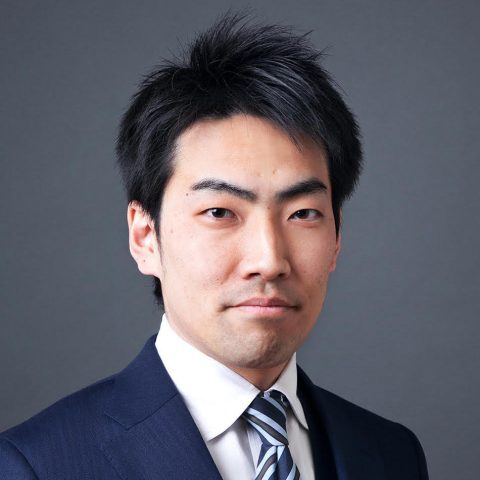 IUU Fisheries Working Forum Yoshihiro graduated from public law department, Faculty of Law of Tokyo University. He then joined the House of Representatives Secretariat and supported the operation of Budget Committee. He also worked on research projects through Financial Affairs Research Service during that period. From 2013 to 2015, Yoshihiro worked at the Ministry of Finance and carried out several research projects on financial policy. He joined GR Japan in 2016 and has been conducting various policy analysis and developing policy proposals. As a secretariat of IUU Fishery Forum, Yoshihiro develops policy proposals and host symposium with partner NGOs. |
| Main Hall | |
| 17:00▼18:20 |
Wrap-up: Toward 2020 - Mainstreaming the Sustainable SeafoodFacilitator◇ Wakao Hanaoka ◇ Kaori Fujita Speaker◆ Masanori Miyahara ◆ Shintaro Ikeda ◆ Mariko Kawaguchi ◆ Yuki Arata ◆ Yasuyuki Yamamoto Wrap-up: Toward 2020 - Mainstreaming the Sustainable SeafoodFacilitator CEO, Seafood Legacy After working in marine conservation in the Maldives and Malaysia, Wakao joined Greenpeace Japan as a Senior Ocean Campaigner, where he started the Sustainable Seafood Market Project. Later, Wakao founded Seafood Legacy in Tokyo in 2015, to build Japan-centric solutions for seafood sustainability by addressing the importance of domestic business-led initiatives to create a driving force for regulatory reforms. Wakao is also an Expert Advisor of the Cabinet Office Council for Promotion of Regulatory Reform Fishery Working Group, a Committee Member of the Fishery Agency Wide Sea-area Fisheries Adjustment Commission, and a Collaborator member of the Conservation Alliance for Seafood Solutions (CASS). He is also a steering board member of Global Sustainable Seafood Initiatives (GSSI) and a member of Global Seafood Rating Alliance (GSRA).  Senior Editor, Nikkei ESG / Producer, Nikkei ESG Management Forum Kaori was born in Uozu-city, Toyama prefecture. After graduating from the department of physics, faculty of science, the University of Tokyo, she started her career at Nikkei Business Publications. Prior to the current position, Kaori was an editor of Nikkei Electronics, vice editorial chief of National Geographic Japan, and editorial committee of Nikkei Ecology, a magazine for corporates’ environmental management. She is specialized in biodiversity, natural capital, ESG investment and information disclosure, SDGs, and regional revitalization. Kaori is also a visiting professor at Toyama University and serves as a member of the committee of SDGs Stakeholders’ Meeting, and the committee of Research Group of environment growth engine of Ministry of the Environment. She published “Biodiversity and Natural Capital Management in SDGs and ESG age” in October 2017. Speaker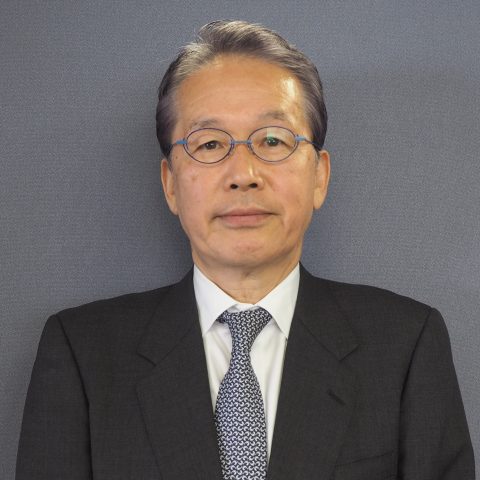 President, Fisheries Research & Education Agency / Special Adviser, Minister of Agriculture, Forestry and Fisheries for International Affairs
Education  Beijing and London Olympic Badminton Player for Japan / Senior Consultant, FH Sports & Entertainment Sector, FleishmanHillard Japan K.K. Former badminton player, Japan's first men's World Championship medalist. Beijing and London Olympic Games Athlete. Having retired from professional badminton in 2015, he is now a senior consultant at FleishmanHillard, one of the world's leading strategic communication and consulting firms headquartered in the United States. He is also devoting himself to the success of the 2020 Tokyo Olympics as Athlete Infrastructure Leader and Food Strategy Committee member on the Organizing Committee of the Olympic and Paralympic Games.  Chief Researcher, Daiwa Institute of Research Ltd. Since 1998, has been engaging in research and study of CSR/CSV, sustainable finance/ESG Investment social business ethical consumption. From April 2010 to June 2011 worked as a head of CSR group at headquarter office of Daiwa Securities Group. She also serves as a Board member of Global Compact Network Japan; Chief Executive of Japan Sustainable Investment Forum; Councilor of Plan International Japan Board member of Japan Ethical Initiative. 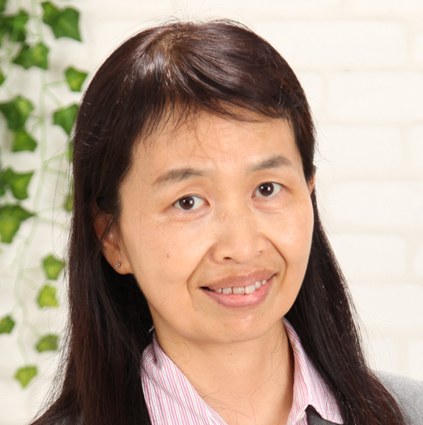 Senior Director of Sustainability, The Tokyo Organizing Committee of the Olympic and Paralympic Games Since joining Tokyo Metropolitan Government (TMG) in 1993, Yuki has gained diverse management experience across multiple bureaus. In 2005, she did research on the Role of Tokyo compared with Greater London Authority at The National Graduate Institute for Policy Studies (GRIPS). From 2006, she has supported Tokyo’s bid to host the 2016 Olympic and Paralympic Games as one of a director at the Tokyo 2016 Olympic Games Bid Promotion Office. From 2009 to 2015, she has been in charge of the field of Climate Change and the air quality control at the Bureau of Environment, TMG. When she took up the position of director for the General Affairs Section, she has been responsible for the various aspects of environmental policies. In 2016 she carried out cultural projects to prepare for the Tokyo 2020 Olympic and Paralympic Games at Arts Council Tokyo. As of April 2017 she was assigned to Senior Director for Sustainability Planning Team at The Tokyo Organising Committee of the Olympic and Paralympic Games, and has been working for the successful delivery of the Olympic and Paralympic Games in 2020.  Manager, Group Merchandising Strategy Department, Aeon Retail Co., Ltd. Yasuyuki joined in JUSCO (currently AEON) in 1984. Yasuyuki has extensive experience in importing high-quality products which meets the various food safety standards. He had been in charge of developing eel, shrimp, crab, and organic agricultural products in the past. In 2001, he developed AEON’s eco-friendly seafood private brand “Greeneye” which incorporates EU organic standard. He also launched chemical-free eel and shrimp aquaculture products in the past. After a year of preparation, Yasuyuki successfully introduced MSC certification to AEON in 2006. Most recently, he developed AEON’s seafood sustainable seafood procurement policy and 2020 goal. His motto is to provide sustainable lifestyle to the society. |
| 18:20▼18:25 |
Closing Remark◆ Taro Tanaka ◆ Sarah Hogan Closing Remark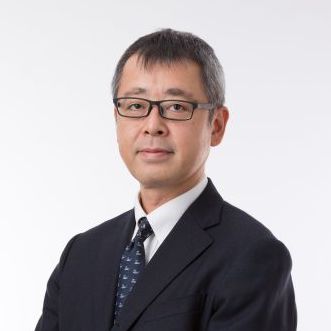 Editor in Chief, Nikkei ESG
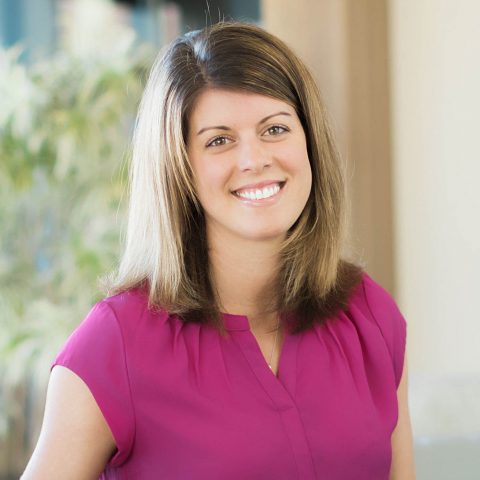 David and Lucile Packard Foundation
|
| Room B | |
| 18:30▼20:00 |
ReceptionReception |